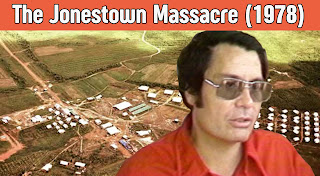Inside Waco:
The Inside Story of The Waco Siege (1993)
• Inside Waco: The Inside Story of The Waco Siege (1993)
• David Koresh: aka: "Vernon Wayne Howell" = 211 (LCH Kabbalah)
The Waco siege was the law enforcement siege of the compound that belonged to the religious sect Branch
Davidians. It was carried out by American federal, Texas state law enforcement, and the U.S. military,
between February 28 and April 19, 1993. The Branch Davidians were led by David Koresh and were
headquartered at Mount Carmel Center ranch in the community of Axtell, Texas, 13 miles (21 kilometers)
east-northeast of Waco. Suspecting the group of stockpiling illegal weapons, the Bureau of Alcohol,
Tobacco, and Firearms (ATF) obtained a search warrant for the compound and arrest warrants for Koresh
and a select few of the group's members.
The incident began when the ATF attempted to serve a search and arrest warrant on the ranch. An intense
gunfight erupted, resulting in the deaths of four government agents and six Branch Davidians. Upon the
ATF's entering of the property and failure to execute the search warrant, a siege lasting 51 days was
initiated by the Federal Bureau of Investigation (FBI). Eventually, the FBI launched an assault and
initiated a tear gas attack in an attempt to force the Branch Davidians out of the ranch. Shortly
thereafter, the Mount Carmel Center quickly became engulfed in flames. The fire resulted in the deaths
of 76 Branch Davidians, including 25 children, two pregnant women, and David Koresh.
The events of the siege and attack are disputed by various sources. A particular controversy ensued
over the origin of the fire; an internal Justice Department investigation concluded in 2000 that
incendiary tear gas canisters were used by the FBI, but maintained that sect members had started the
fire. This came after a panel of arson investigators concluded that the Davidians were responsible for
igniting it, simultaneously, in at least three different areas of the compound.
The Branch Davidians (also known as "The Branch") are a religious group that originated in 1955 from a
schism in the Shepherd's Rod (Davidians) following the death of the Shepherd's Rod founder Victor
Houteff. Houteff founded the Davidians based on his prophecy of an imminent apocalypse involving the
Second Coming of Jesus Christ and the defeat of the evil armies of Babylon. As the original Davidian
group gained members, its leadership moved the church to a hilltop several miles east of Waco, Texas,
which they named Mount Carmel, after a mountain in Israel mentioned in Joshua 19:26 in the Bible's Old
Testament.
A few years later, they moved again to a much larger site east of the city. In 1959, Victor's widow,
Florence Houteff, announced that the expected Armageddon was about to take place, and members were told
to gather at the center to await this event. Many of them built houses, others stayed in tents, trucks,
or buses, and most of them sold their possessions.
Following the failure of this prophecy, control of the site (Mount Carmel Center) fell to Benjamin
Roden, founder of the Branch Davidian Seventh-day Adventist Association (Branch Davidians). He promoted
different doctrinal beliefs than those of Victor Houteff's original Davidian Seventh-day Adventist
organization. On Roden's death, control of the Branch Davidians fell to his wife, Lois Roden. Lois
considered their son, George Roden, unfit to assume the position of prophet. Instead, she groomed
Vernon Wayne Howell (later known as David Koresh) to be her successor.
In 1984, a meeting led to a division of the group, with Howell leading one faction (calling themselves
the Branch Davidians) and George Roden leading the competing faction. After this split, George Roden
ran Howell and his followers off Mount Carmel at gunpoint. Howell and his group relocated to Palestine,
Texas.
Copyright Disclaimer Under Section 107 of the Copyright Act 1976, allowance is made for "fair use" for
purposes such as criticism, comment, news reporting, teaching, scholarship, and research. Fair use is a
use permitted by copyright statute that might otherwise be infringing. Non-profit, educational or
personal use tips the balance in favor of fair use.

































































